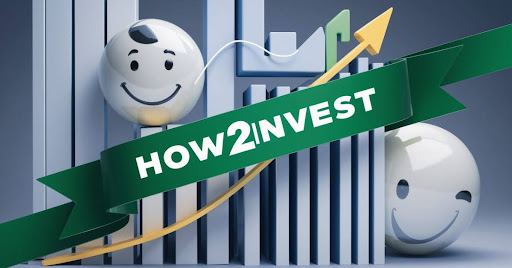Who do you contact when it’s time to enroll in a repayment plan?
When it comes to managing debt, one of the first questions that arises is: who do you contact when it’s time to enroll in a repayment plan? It’s a crucial consideration for anyone facing financial difficulties. Understanding whom to approach not only eases the process but can also lead to better solutions tailored to your specific circumstances.
Understanding Repayment Plans

Enrolling in a repayment plan often feels like daunting territory, especially if you’re unsure of what steps to take or who to consult. The key is to grasp the fundamental aspects of repayment plans to empower yourself in making informed decisions.
What is a Repayment Plan?
A repayment plan is an agreement between a borrower and lender where the borrower agrees to repay their debts over a specified period under agreed terms.
These plans can vary widely based on the type of debt, the lender’s policies, and the borrower’s particular financial situation.
They are commonly utilized in contexts such as student loans, personal loans, credit card debt, and even mortgage arrears. The motivation behind these plans is generally to make debt management more manageable by breaking down larger outstanding amounts into smaller, more digestible payments.
Types of Repayment Plans
There are various types of repayment plans available depending on the nature of the debt:
- Income-driven repayment plans help borrowers manage federal student loans by basing monthly payments on their income and family size.
- Debt management plans typically involve working with a credit counseling agency that negotiates lower interest rates or fees with creditors.
- Loan modification programs allow borrowers to change terms of their existing loans to avoid default or foreclosure.
Each type of plan has its unique advantages and disadvantages, so understanding which one suits your needs best is essential.
When Should You Consider Enrolling?
It’s important to recognize the warning signs indicating it’s time to consider enrolling in a repayment plan. If you’re falling behind on payments, using credit cards to fund daily living expenses, or experiencing persistent financial stress, that could be a signal to explore options.
Evaluating your current financial situation—total debt, income, and expenditures—will enable you to determine if a repayment plan is the most effective route to regain control over your finances.
Identifying Whom to Contact

Now that we’ve touched upon the basics of repayment plans, let’s delve into identifying who do you contact when it’s time to enroll in a repayment plan?
Financial Institutions
If you have loans through a bank or credit union, your first point of contact should be the lender directly.
Most lenders offer options for restructuring loans or enrollment in repayment plans. Generally, they have dedicated customer service teams trained to deal specifically with inquiries about repayment options.
It’s advisable to gather your financial information beforehand, including your loan balance, current payment status, and any other relevant documents. This preparation will help facilitate a productive conversation.
Credit Counseling Agencies
Credit counseling services can be invaluable resources for individuals struggling with overwhelming debt.
These agencies employ certified credit counselors who can provide personalized advice and strategies for managing debts. They may recommend a debt management plan, which can significantly simplify the process by acting as intermediaries with creditors.
Contacting a credit counseling agency can be beneficial, particularly if you feel overwhelmed or confused about your options. They can assist in evaluating your financial situation and guiding you toward the most suitable repayment plan.
Student Loan Servicers
For those with student loans, contacting your loan servicer is essential.
Student loan servicers are responsible for managing your loan accounts, and they can provide insights into various repayment options available for federal student loans. Depending on your situation, they might suggest income-driven repayment plans, deferment, or forbearance.
It’s crucial to engage with them early, especially if you’re struggling to keep up with payments, as they can offer valuable assistance in navigating the complex federal student loan landscape.
Preparing for Enrollment

Once you’ve identified who to contact when it’s time to enroll in a repayment plan, the next step is preparation. This phase is critical for ensuring that you maximize the benefits of the repayment plan selected.
Gather Necessary Documentation
Before reaching out to any agency or institution, ensure you compile all pertinent financial records.
This includes your loan statements, income verification (like pay stubs or tax returns), and a list of monthly expenses. Being well-prepared will not only save time but will also demonstrate your seriousness about addressing your debt issues.
Understand Your Options
Understanding the different repayment options available to you is vital.
Research various repayment plans that your lender or counselor may present. Knowing the pros and cons of each option allows for a thoughtful discussion when you do connect with them.
Moreover, being aware of alternatives can empower you to negotiate better terms that align with your financial capabilities.
Be Ready to Discuss Your Financial Situation
When contacting your lender or credit counselor, be prepared to discuss your financial situation openly.
Transparency is vital because it will help the advisor understand your challenges and craft a repayment strategy that best fits your needs. Explain any unique situations you may face—such as sudden job loss or medical emergencies—that may affect your ability to make payments.
The more candid you are, the better equipped they will be to assist you effectively.
Frequently Asked Questions

What is a repayment plan?
A repayment plan is an arrangement made between a borrower and their lender to repay debt over time, typically involving fixed monthly payments.
How do I know if I need a repayment plan?
Signs include falling behind on payments, relying on credit cards for basic living expenses, or feeling overwhelmed by debt.
How long does it take to enroll in a repayment plan?
Enrollment times can vary, but generally, it depends on the responsiveness of your lender or counselor once you provide the necessary documentation.
Can I change my repayment plan later?
Yes, depending on the lender’s policies, most repayment plans allow for adjustments as your financial situation changes.
What happens if I miss a payment in a repayment plan?
Missing a payment can result in penalties, additional fees, or damage to your credit score, so always communicate with your lender if you’re struggling to make a payment.
Conclusion

In summary, knowing who do you contact when it’s time to enroll in a repayment plan is critical to reclaiming control of your finances. From financial institutions and credit counseling agencies to student loan servicers, the avenues available for assistance are diverse. The steps you take—from preparing documentation to understanding your options—can ultimately set you on a successful path to managing your debt.
Whether you are dealing with student loans, credit card debt, or personal loans, the key takeaway is to reach out sooner rather than later. By doing so, you open the doors to potential relief and create pathways towards achieving greater financial wellness.



















































